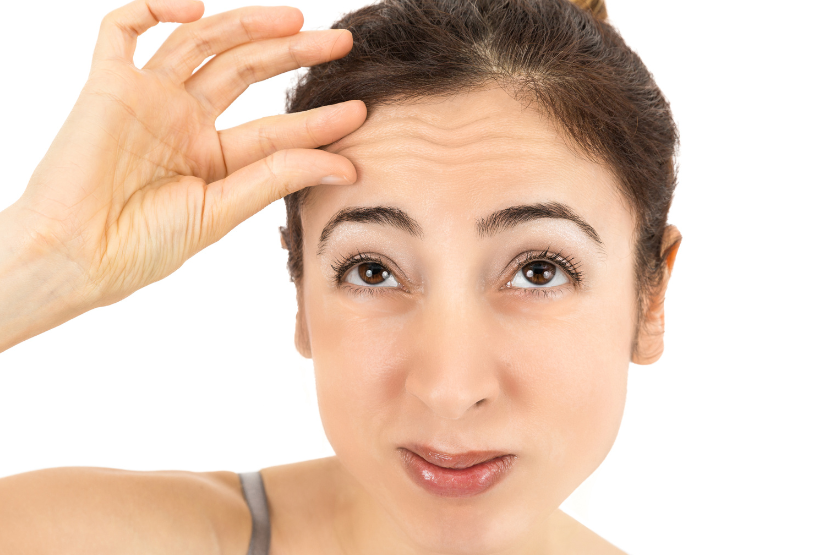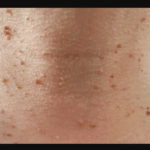Eye wrinkles are a common sign of aging that can make people feel self-conscious. They are often caused by a combination of factors, including genetics, lifestyle habits, and environmental factors. While some people may be more prone to developing eye wrinkles than others, there are steps that can be taken to minimize their appearance.
One of the most significant causes of eye wrinkles is exposure to the sun’s UV rays. Over time, this can damage the skin’s collagen and elastin fibers, leading to a loss of elasticity and firmness. Other lifestyle factors, such as smoking and poor nutrition, can also contribute to the development of eye wrinkles.
To prevent the formation of eye wrinkles completely, there are steps that can be taken to reduce their appearance. This may include using high-quality skincare products, adopting a healthy lifestyle, and protecting the skin from UV rays. By taking a proactive approach to skincare, individuals can feel more confident and comfortable in their own skin.
Aging and Eye Wrinkles

As people age, the skin loses elasticity and becomes thinner. This is due decreased collagen and elastin production, which are the proteins responsible for keeping skin firm and supple. As a result, wrinkles, including eye wrinkles, become more noticeable.
Additionally, as people age, the muscles around the eyes weaken, causing the skin to sag and form wrinkles. This is particularly noticeable in the area around the eyes, where the skin is thinner and more delicate. Other lifestyle factors can also contribute to the development of eye wrinkles.
Sun Exposure
Exposure to the sun is one of the leading causes of eye wrinkles. The sun emits ultraviolet (UV) rays that can damage the skin and cause premature aging. The skin around the eyes is particularly sensitive and can easily be damaged by the sun’s rays.
UV rays can break down collagen and elastin, which are proteins that give the skin its elasticity and firmness. When these proteins break down, the skin becomes less elastic and more prone to wrinkles. Additionally, sun exposure can cause the skin to become dry, which can also contribute to the formation of wrinkles.
To protect the skin around the eyes from the sun’s harmful rays, it is important to wear sunglasses and a hat when spending time outdoors. Look for sunglasses that offer 100% UV protection and have large frames that cover the entire eye area. Applying sunscreen with an SPF of at least 30 can also help protect the skin from sun damage.
Smoking
Smoking is not only harmful to your overall health, but it can also cause wrinkles around the eyes. Smoking cigarettes releases harmful toxins into the body, which can damage the collagen and elastin fibers in the skin. These fibers are responsible for keeping the skin firm and elastic, and when they break down, wrinkles can form.
Furthermore, smoking can cause the blood vessels in the skin to narrow, reducing blood flow and oxygen to the skin. This can lead to a dull and uneven complexion, as well as wrinkles around the eyes.
Studies have shown that smokers are more likely to develop wrinkles around the eyes than non-smokers. The longer a person smokes, the more likely they are to develop wrinkles and other signs of aging.
Quitting smoking can help to reduce the appearance of wrinkles around the eyes, as well as improve overall skin health. It can take time for the skin to recover from the damage caused by smoking, but with patience and dedication, it is possible to achieve a smoother, more youthful-looking complexion.
Dehydration and Poor Nutrition
Dehydration and poor nutrition are two common causes of eye wrinkles. When the body is dehydrated, the skin loses its elasticity, which can lead to the formation of wrinkles. In addition, poor nutrition can contribute to the development of wrinkles around the eyes.
A diet lacking essential vitamins and minerals can cause the skin to become dry and dull. This can make wrinkles more noticeable and can also lead to the formation of new wrinkles. Eating a healthy, balanced diet that includes plenty of fruits and vegetables can help to keep the skin looking youthful and radiant.
In addition to a healthy diet, it is important to stay hydrated by drinking plenty of water throughout the day. When the body is properly hydrated, the skin is better able to retain moisture, which can help to prevent the formation of wrinkles.
To combat dehydration and poor nutrition, individuals should aim to drink at least eight glasses of water per day and should consume a diet that is rich in vitamins and minerals. By taking these steps, individuals can help to keep their skin looking youthful and healthy while reducing the appearance of wrinkles around the eyes.
Genetics and Hormones
Eye wrinkles can be a result of genetics and hormones. Some people are more prone to wrinkles due to their genes. If your parents or grandparents have wrinkles, you may be more likely to develop them as well. Hormones can also play a role in the development of wrinkles. As people age, their hormone levels change, which can cause the skin to become thinner and less elastic, making it more prone to wrinkles.
Studies have shown that women are more likely to develop wrinkles than men. This is partly due to the fact that women have less collagen and elastin in their skin, which makes it less resilient to damage. Hormonal changes that occur during menopause can also contribute to the development of wrinkles.
In summary, genetics and hormones can play a significant role in the development of eye wrinkles. Women are more likely to develop wrinkles than men, and hormonal changes during menopause can contribute to their development. Sun exposure and smoking are also major contributors to wrinkles.
Repeated Facial Expressions

One of the most common causes of eye wrinkles is repeated facial expressions. When a person makes the same facial expression repeatedly, it can cause the skin to fold and crease in the same way, leading to the formation of wrinkles over time.
For example, squinting can cause wrinkles around the eyes, while frowning can cause wrinkles between the eyebrows. Smiling can also cause wrinkles around the eyes and mouth, especially if the person has a habit of smiling with a lot of force.
Over time, these repeated facial expressions can cause the skin to lose elasticity, making wrinkles more likely to form. This is why people who have jobs or hobbies that require a lot of facial expressions, such as actors or musicians, may be more prone to wrinkles.
To reduce the risk of wrinkles caused by repeated facial expressions, it can be helpful to consciously relax the facial muscles when not needed. For example, when reading or watching TV, a person can consciously relax their facial muscles to reduce the amount of squinting or frowning they do.
Environmental Factors
Environmental factors can also contribute to the development of eye wrinkles. These factors include:
- Exposure to UV rays: The sun’s harmful rays can damage the skin and lead to premature aging, including the formation of wrinkles around the eyes.
- Pollution: Exposure to pollutants in the air can cause oxidative stress, which can damage the skin and lead to wrinkles.
- Passive Smoking: Passive Smoking can also cause wrinkles around the eyes, as well as other signs of premature aging. This is due to the harmful chemicals in tobacco when you breath in the smoke of other people’s cigarettes.


![Say Goodbye To Wrinkles On The Face [Easy Tips to Prevent Them] wrinkles on face](https://skincaregeeks.com/wp-content/uploads/2023/04/wrinkles-on-face-1-2-150x150.png)


